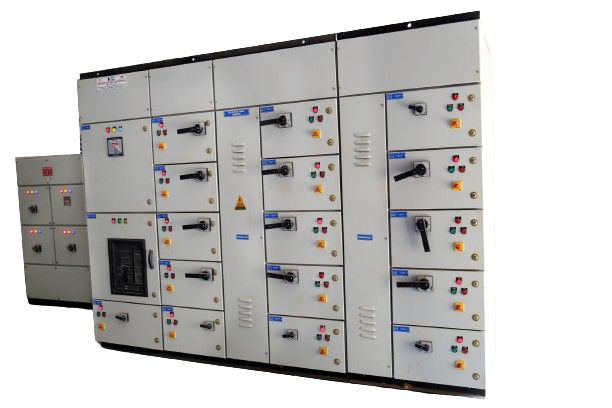In today’s fast-paced world, electricity has become the lifeline of every home, office, and industrial unit. From powering heavy machinery to lighting residential spaces, the need for safe and efficient power distribution cannot be overstated. One of the most crucial components in ensuring smooth electricity management is the Meter Panel. These panels act as the central hub for monitoring, controlling, and distributing electrical power, making them indispensable for residential, commercial, and industrial infrastructure.
This article explores the importance of meter panels, their functions, types, and advantages, along with insights into related equipment that strengthens electrical distribution systems.
What is a Meter Panel?
A meter panel is an enclosure designed to house electrical meters and associated components. It records electricity consumption and helps regulate power supply within a system. These panels are usually installed by utility providers or building contractors to ensure accurate billing and efficient energy management.
Meter panels are widely used in:
- Residential complexes to measure individual household consumption.
- Commercial buildings for fair distribution and billing.
- Industrial plants where large power loads need careful monitoring.
Key Functions of Meter Panels
Meter panels do much more than just record electricity usage. Their importance lies in their multifunctional role, which includes:
- Monitoring Energy Consumption
- The core purpose of a meter panel is to measure and display the amount of electricity consumed over time.
- Ensuring Load Distribution
- By channeling electricity into different circuits, meter panels prevent overloading and safeguard equipment.
- Billing Accuracy
- With digital and smart meter panels, utility companies can ensure precise billing without human error.
- Safety and Protection
- Modern meter panels are equipped with protective devices like fuses and breakers to reduce risks of short circuits, fire hazards, and electrical accidents.
Types of Meter Panels
Meter panels vary depending on their application, load requirement, and design. Some of the commonly used types are:
1. Single-Phase Meter Panels
Used in homes and small offices where energy requirements are lower, these panels are compact and cost-effective.
2. Three-Phase Meter Panels
Designed for industries and commercial buildings, these can handle larger loads and provide balanced power distribution.
3. Smart Meter Panels
Integrated with advanced technology, these panels offer real-time monitoring, remote reading, and energy analytics to help users reduce wastage.
4. Outdoor Weatherproof Panels
Built with robust enclosures, these are suitable for harsh environments, ensuring durability and safety.
Why Meter Panels are Essential
The growing demand for electricity requires systems that can manage energy efficiently. Here’s why meter panels are indispensable:
- Accuracy in Billing: Reduces disputes between consumers and providers.
- System Reliability: Keeps electrical loads balanced and reduces downtime.
- Safety Compliance: Meets industrial standards to ensure protection.
- Energy Optimization: Helps businesses monitor usage and cut unnecessary costs.
Integration with 3 Phase Electrical Panels
In industrial and large commercial setups, meter panels are often integrated with 3 Phase Electrical Panels. This combination ensures that heavy loads are distributed evenly across three phases, reducing the chances of overload. By using a meter panel alongside a three-phase system, businesses can track consumption with accuracy while ensuring power stability.
Furthermore, modern industries prefer integrating 3 Phase Electrical Panels with advanced monitoring systems, making energy management smarter, more efficient, and highly reliable.
Advantages of Modern Meter Panels
Technological advancements have transformed traditional meter panels into highly efficient systems. Some benefits include:
- Digital Accuracy: Smart meters reduce manual errors.
- Remote Monitoring: Cloud-enabled systems allow tracking energy consumption from anywhere.
- Load Control: Helps avoid damage to machinery and household appliances.
- Eco-Friendly Usage: Promotes sustainable energy practices by identifying areas of wastage.
Applications Across Industries
Meter panels are widely used across diverse sectors such as:
- Manufacturing Units: To manage heavy loads of machinery.
- Hospitals: For uninterrupted power supply to critical equipment.
- Educational Institutions: To monitor usage across campuses.
- Data Centers: Where reliability and precision are paramount.
In each case, meter panels not only ensure power efficiency but also enhance safety, making them an investment in long-term reliability.
The Future of Meter Panels
The future of meter panels lies in automation and smart technology. With IoT (Internet of Things) and AI-driven systems, upcoming meter panels will do more than monitor—they will predict usage trends, optimize load distribution, and even contribute to energy conservation goals.
Smart grids, renewable energy integration, and demand-based power supply are pushing the development of next-generation meter panels that are intelligent, eco-friendly, and highly adaptable.
Conclusion
Meter panels form the foundation of safe and reliable power distribution. From homes to industries, their role in monitoring, billing, and ensuring load balance cannot be ignored. As technology advances, these panels are evolving into smarter systems that empower users to control consumption and reduce costs.
In large installations, they work hand-in-hand with 3 Phase Electrical Panels to provide a seamless and efficient power distribution framework. For businesses and industries looking for advanced solutions, combining modern meter panels with smart electrical systems ensures optimal performance.
As we move toward a future of sustainable energy, solutions like Compact Substation and advanced meter panels will become central to power infrastructure. These innovations not only promise reliability but also bring the added advantage of reducing operational costs and enhancing safety standards. With the growing focus on efficiency, Compact Substation systems, paired with smart meter panels, are set to redefine how power is managed and distributed worldwide.






Comments